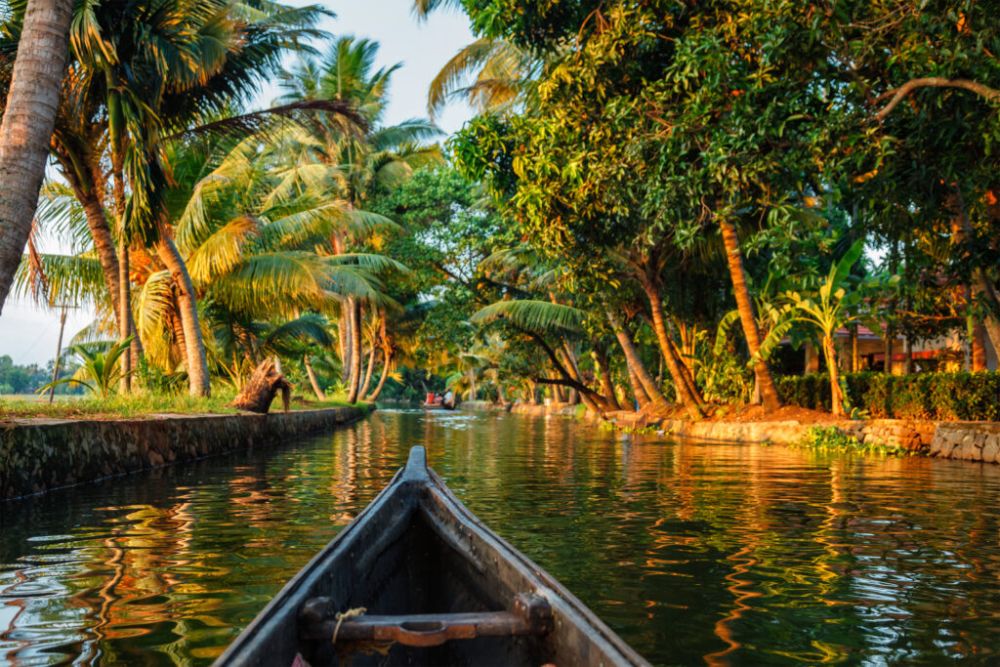

Kochi, officially known as Cochin, is a major port city on the southwestern coast of India within the state of Kerala. Famed for its scenic backwaters, Kochi offers a blend of history, culture, and natural beauty that has captivated travelers for centuries.
The history of tourism in Kochi can be traced back to the times when it was a significant spice trading center on the west coast of India. Kochi's trade connections established its reputation as a vibrant city open to visitors. However, the scope of leisure tourism began to grow extensively with the state government's initiatives starting in the late 20th century, putting Kerala, including Kochi's backwaters, on the international tourism map.
The backwaters of Kochi, a network of lagoons and lakes lying parallel to the Arabian Sea coast, have long been hallmarks of Kerala's tourism. The tranquil waters, lined with coconut trees and punctuated with Chinese fishing nets, truly started gaining international attention following the state's "God's Own Country" campaign in the 1980s.
The introduction of houseboat cruises along these backwaters added a luxurious dimension to the otherwise rustic charm of Kochi's waterways. These kettuvallams (traditional houseboats) allow tourists to experience the daily lives of the locals in the backwater regions while enjoying a serene sense of moving through nature.
In recent years, there's been a significant shift towards eco-friendly and community-based tourism practices. Initiatives have focused on ensuring that the ecological balance of the backwaters is maintained while providing authentic cultural experiences to visitors. These practices have attracted a new wave of responsible tourists keen on preserving Kochi’s natural and cultural heritage.
The latest trend in Kochi's tourism is the integration of technology to facilitate better visitor experiences. From virtual tours to online booking for houseboat cruises, technology has made accessing and exploring Kochi more convenient.
Experiential travel is also growing, with tourists looking for immersive experiences like village walks, cooking classes, and traditional art forms performances like Kathakali and Theyyam. These interactions provide deeper insights into the local culture.
Despite periodic challenges such as natural calamities and global events like the COVID-19 pandemic, Kochi's tourism industry has shown resilience. Post-pandemic, there is a trend of increased interest in outdoor and open-space tourist destinations, which bodes well for the backwaters, as they provide an ideal setting for a socially-distanced getaway.
Looking into the future, Kochi aims to continue balancing the preservation of its natural gems with the development of its tourism infrastructure. Efforts are being made to introduce more sustainable practices that will not only enhance the tourist experience but also ensure that these beautiful backwaters can be enjoyed by generations to come.
In conclusion, the Kochi backwaters have evolved from being a simple retreat for travelers to becoming a global symbol of sustainable and immersive tourism. The history of Kochi backwaters tourism stands as a testament to Kerala’s dedication to maintaining its title as one of the most beloved travel destinations in India.